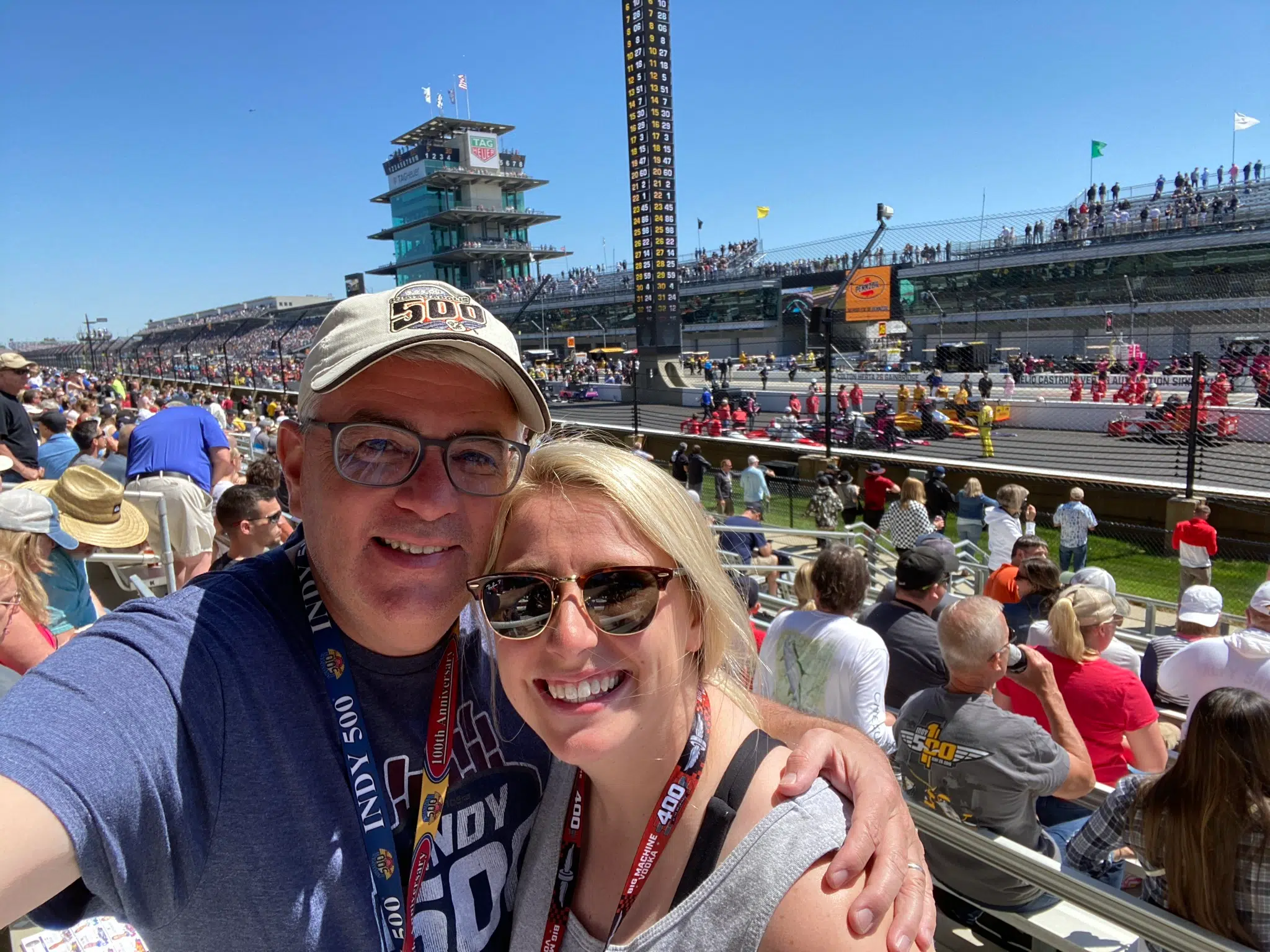It’s the largest single day sporting event on planet Earth. Let that sink in – as over 300,000 people gather in the small Hoosier town of Speedway, Indiana, just northwest of Indianapolis. A journey that began over 110 years ago has continued with only two interruptions; both for world war, and delayed once for global pandemic.
My earliest memories of the Speedway were of television broadcasts of the tragic 1973 race, where three people would lose their life during the month. Listening to the race day radio broadcast in 1977 as I worked on my bicycle in the driveway. My first visit, 1977 for a museum tour with my family, and finally to a qualifying day in 1978. Later that month, as a 13-year old, I saw Al Unser win his third 500, it would be the first of my 38 race day adventures, spanning the next 44-years.
It was love at first sight. I don’t know why, but that piece of Indiana real estate has connected with me. As a student, it was history that stirred my imagination and fueled interest to learn more. The Indianapolis 500 has been no different.
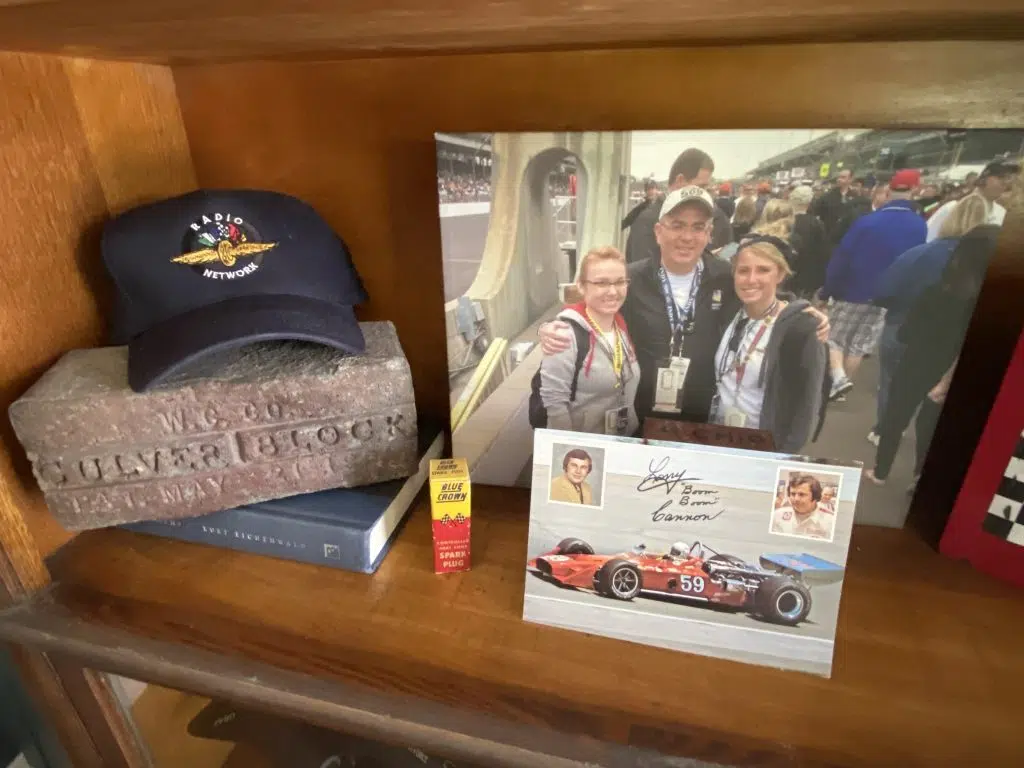
While race day brings thrills, speed, pagentiry, tradition, the exuberance of seeing the winner immortalized for the ages, it always goes back to the history of the event for me. The people, the teams, the technology and drama, the spirit of those who tried and failed, of those who dreamed and succeeded. I couldn’t get enough and still can’t.
In the spring of 1982 my connection to the history of the event went from passive to active. I bought my first piece of 500 memorabilia,and the journey began.
Introduced to the concept of collecting Indianapolis 500 memorabilia by one of my broadcast mentors; Tom Morris. His first visit to the track was in 1963, his first race 1965. He brought me to an memorabilia swap meet race weekend in 1982 at the old Howard Johnson hotel in downtown Indianapolis. There I bought a large picture of the start of the 1961 race; it still hangs in my basement to this day.
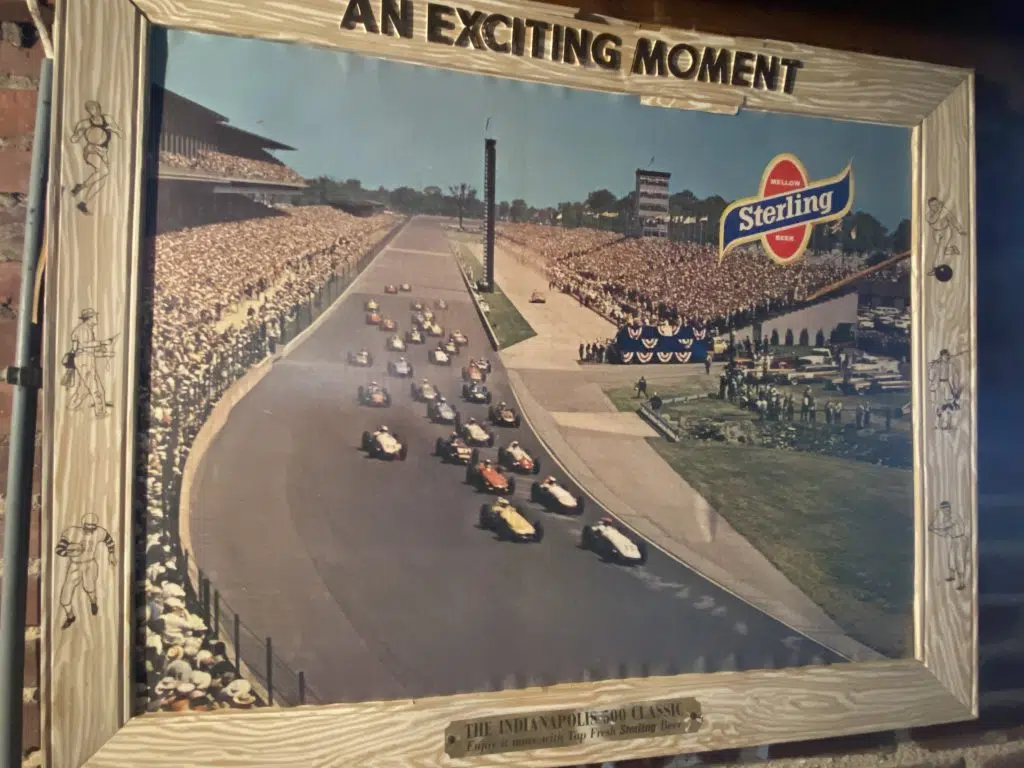
My first piece of Indy 500 memorabilia – the 1961 race start.
Fast forward 40-years, we’ve completed a collection of Indianapolis 500 programs covering the first race in 1911 to this year in 2022. In addition we’ve assembled a complete set of printed yearbooks, going back to 1946 as well as numerous items that drew my interest.
My favorite pieces include three programs (1936, 1937 and 1938) that were given to me by a listener to our Danville radio stations. He attended the race every year with a group of buddies. He kept these programs for decades, it turns out some of those guys didn’t come home from WWII, he knew I would appreciate the programs they purchased so many years ago. I promised I wouldn’t sell them…I won’t.. In fact I later discovered that one of the programs had been signed by 1932 winner Fred Frame. It’s a valuable and historic item, it will remain with me.
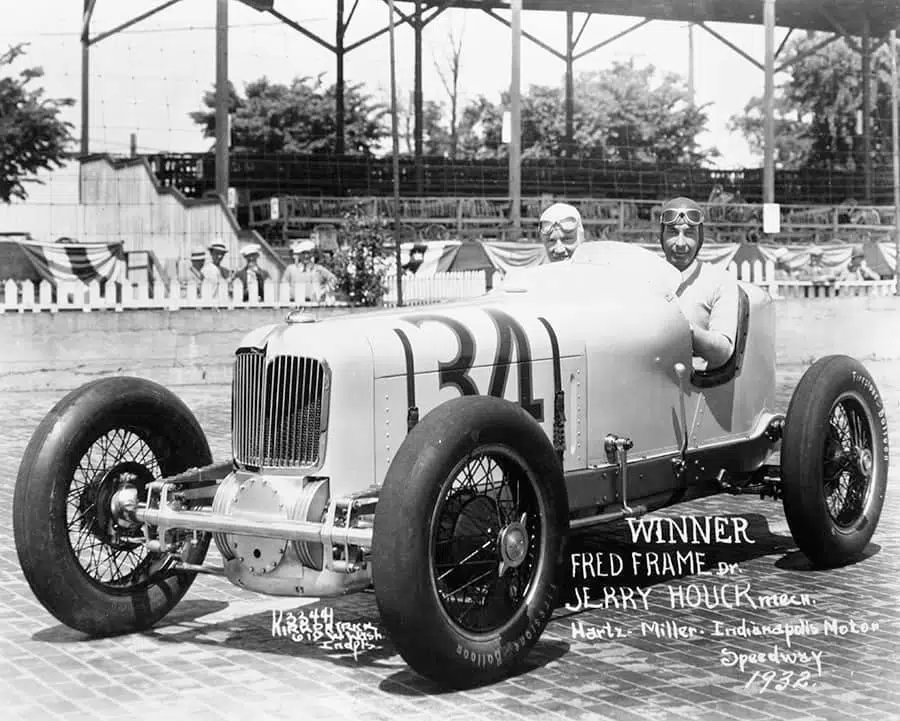
Photo Credit: Indianapolis Motor Speedway.
We have three Speedway bricks in our collection. These were manufactured in Veedersburg Indiana at the Wabash Clay Company. In 1909; an order for 3.2 million bricks was placed by the owners of the Speedway. The original racing surface of crushed rock and tar proved to be unstable and a brick surface was the next best choice. In the 1990’s I joined Indianapolis 500 historian Donald Davidson in spending a day in Veedersburg with descendants of those who manufactured the original bricks. City officials shared documents related to the purchase of the bricks, it was a day we both still refer to.
A boxed Blue Crown Sparkplug is a prized item of my collection. The winners of the 1947, 1948 and 1949 Indianapolis 500 were all sponsored by Blue Crown Sparkplugs. Team owner Lou Moore was the Roger Penske of the day, this little item is a direct connection when the “Blue Crowns” ruled the 500-mile race.
While I rarely ask for autographs, I was at an event in the 1980’s with three former 500 winning drivers. The 1952 winner Troy Ruttman, the 1959 and 1962 winner Roger Ward, plus 1960 winner Jim Rathman. We had the opportunity to talk about the days when racing was so dangerous and they were the kings of the sport. They each shared a personalized photo, which is cherished within our collection.
The last piece highlighted is a scoring card from the press room at the Indianapolis Motor Speedway. As a credential media member for a number of years, we would see the media staff write the times of each driver as they made qualifying attempts. If they were successful, the cards would be posted on the wall in order of their provisional starting positions. Long before the use of digital scoring systems, these handwritten cards were what media members would rely on for information during time trials.
Every race fan has a favorite car, driver or combination of the same. For me my favorite car was a 1981 Eagle driven by Mike Mosley. It was called the Pepsi Challenger, yellow, white and red, it had a very unique design and it was fast. In fact it started in the middle of the front row, the second fastest car to qualify that year.. To many fans, the Pepsi Challenger was their favorite car for the same reasons as me. Years later I was at a memorabilia show and while looking through a random box, found the actual timing card from the media center for that very car! I was so excited, my favorite car and I’m holding the actual card from the media center back in 1981. It was quickly purchased and remains in my collection to this day.
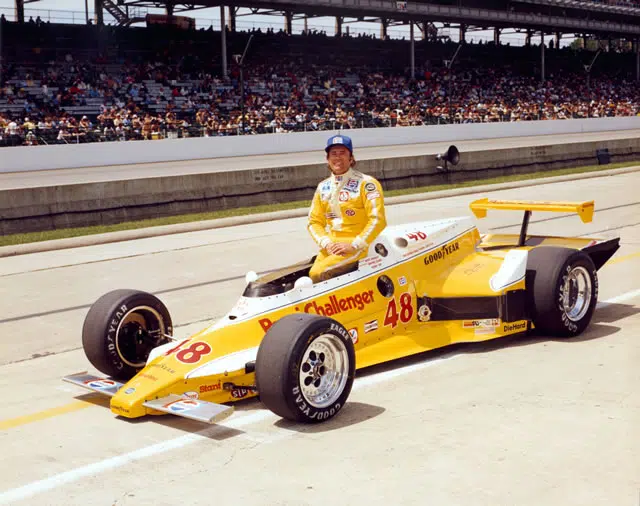
Photo Credit: Indianapolis Motor Speedway.
Race day in Indianapolis is a mix of traditions, pagentery, emotions and history. It’s a day for families to gather, to share stories from the past, to enjoy a cold drink, a favorite food and honor the 106-years of history that have been written at the corner of 16th Street and Georgetown Road. For me it’s another opportunity to pause and reflect about the men and women who have created this amazing American tradition. A tradition that is still very much alive and
documented and celebrated through this collection that began with a single picture from a day in May back in 1961. The Indianapolis 500, the Greatest Spectacle In Racing!
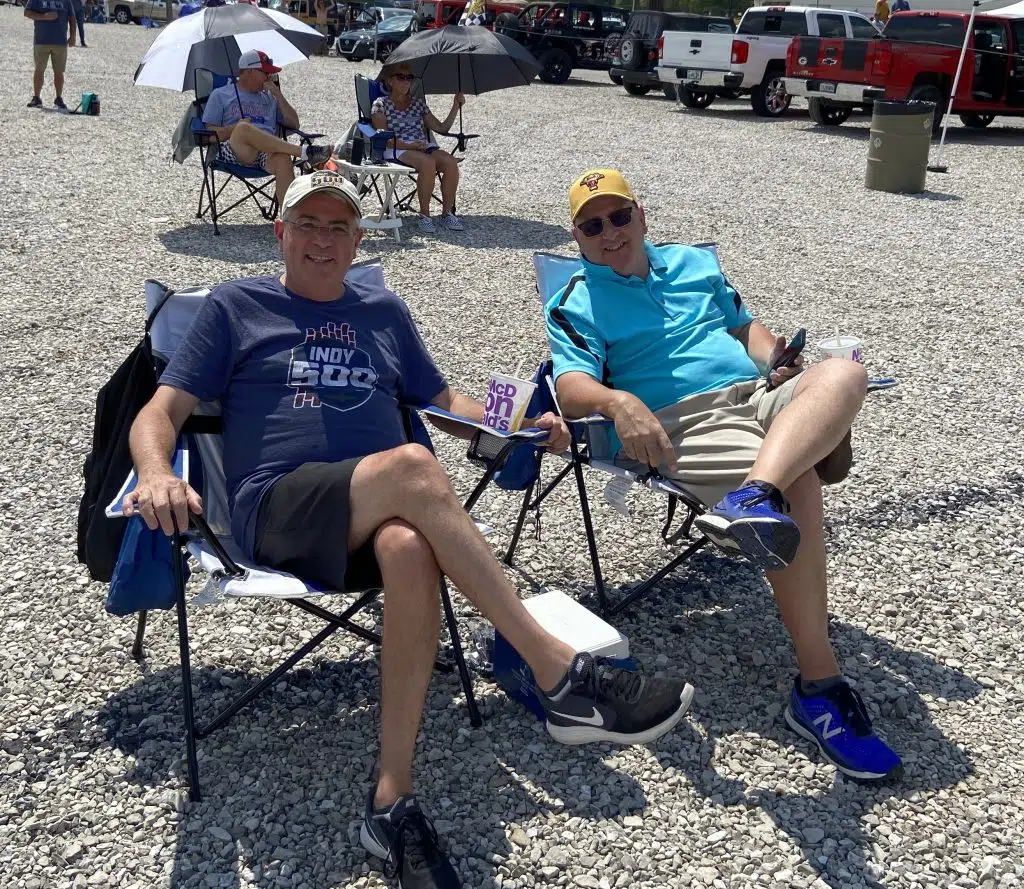
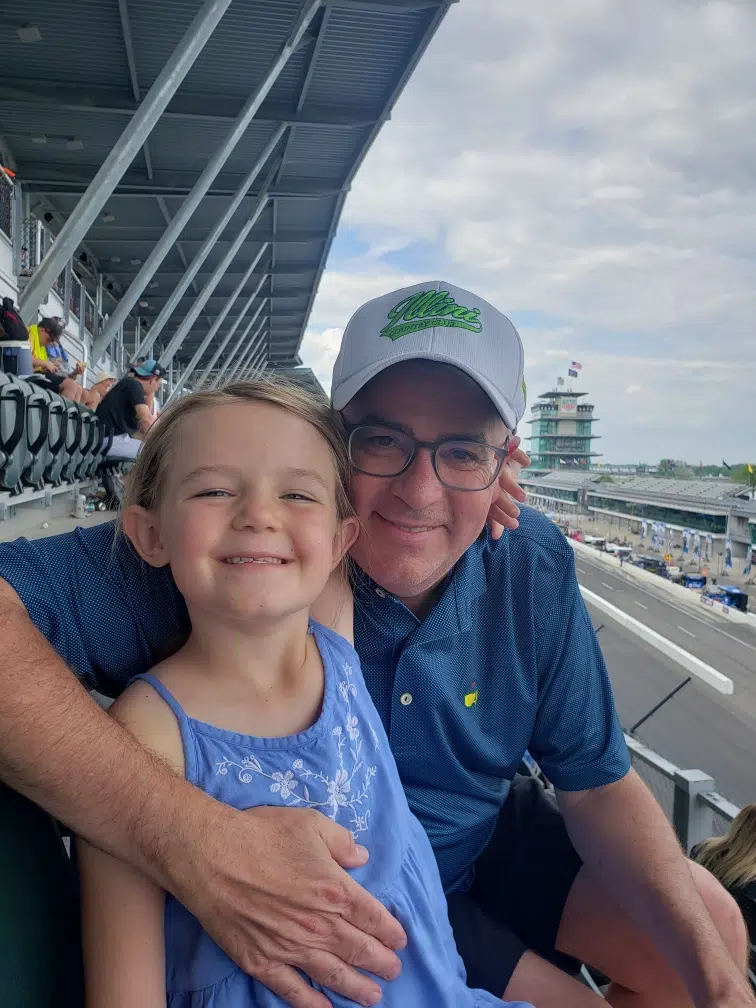
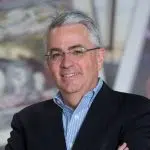
Mike Hulvey is the Vice President and COO of Neuhoff Media.
